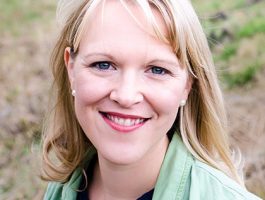
Humility Makes You Productive
Take my yoke upon you and learn from me." Author Hannah Anderson, along with Barbara Rainey, explains what it means to be under Christ's yoke, and how we find rest when we embrace His calling for us. Learning to honor the limits of our body and time leads to refreshment.
Show Notes
About the Host
About the Guest
-
Take my yoke upon you and learn from me." Author Hannah Anderson, along with Barbara Rainey, explains what it means to be under Christ's yoke, and how we find rest when we embrace His calling for us. Learning to honor the limits of our body and time leads to refreshment.
-
Dave and Ann Wilson
Dave and Ann Wilson are hosts of FamilyLife Today®, FamilyLife’s nationally-syndicated radio program. Dave and Ann have been married for more than 38 years and have spent the last 33 teaching and mentoring couples and parents across the country. They have been featured speakers at FamilyLife’s Weekend to Remember® marriage getaway since 1993 and have also hosted their own marriage conferences across the country. Cofounders of Kensington Church—a national, multicampus church that hosts more than 14,000 visitors every weekend—the Wilsons are the creative force behind DVD teaching series Rock Your Marriage and The Survival Guide To Parenting, as well as authors of the recently released book Vertical Marriage (Zondervan, 2019). Dave is a graduate of the International School of Theology, where he received a Master of Divinity degree. A Ball State University Hall of Fame quarterback, Dave served the Detroit Lions as chaplain for 33 years. Ann attended the University of Kentucky. She has been active alongside Dave in ministry as a speaker, writer, small-group leader, and mentor to countless wives of professional athletes. The Wilsons live in the Detroit area. They have three grown sons, CJ, Austin, and Cody, three daughters-in-law, and a growing number of grandchildren.
-

Hannah Anderson
Hannah Anderson is an author and Bible teacher who lives in the Blue Ridge Mountains of Virginia with her husband, Nathan, and their three children. Her books include Humble Roots: How Humility Grounds and Nourishes Your Soul and All That’s Good: Recovering the Lost Art of Discernment...more
Take my yoke upon you and learn from me.” Author Hannah Anderson, along with Barbara Rainey, explains what it means to be under Christ’s yoke, and how we find rest when we embrace His calling for us.
Bob: Oh! Oh, wow! [Laughter]
Dennis: Yes; I just decided to look—
Hannah: Do you have tenure, Dennis? [Laughter]
Dennis: —out the corner of my eye and look at my wife Barbara who joins us; but she’s the guest; right, Barbara?
Barbara: That’s right.
Dennis: She’s our guest here.
Barbara: She is a special guest.
Dennis: You’re the one who brought her in here.
Barbara: I’m here all the time. [Laughter]
Dennis: That’s exactly right.
Bob: I would say both ladies are extremely special.
Dennis: Oh, I would, too, Bob—well-said / well-said. [Laughter]
Hannah Anderson joins us, author of Humble Roots. Welcome back, Hannah. We’re thrilled you joined us all the way from Virginia and from the Blue Ridge Mountains.
Hannah: It is a joy to be here. I don’t always like to leave Virginia, but it’s been good to be here with you.
Dennis: It has been good.
4:00
You’ve got a story you tell that evidently illustrates what we’re talking about here this week about humility, and fruitfulness, and seeing God use us on purpose. It has to do with green beans.
Barbara: —which—you love green beans—
Dennis: I do.
Barbara: —so this will be a fun story for you.
Dennis: I do, but I like green beans with just a little bacon grease in there; okay?
Barbara: —the way his mama made them.
Dennis: Yes; it is. [Laughter]
Hannah: Yes. So, one of the most surprising things about my journey into the idea of humility and applying it to my life was how it affected my work and my productivity. I shouldn’t have been surprised. I think I should have seen this; because in the passage where Christ calls us to come to Him for rest and to experience His humility, He uses the imagery of yoked oxen. Now, this is not an ox, who is sitting around the pasture or sitting under the tree.
5:00
This is a working ox—this is for the purpose of a fruitful, flourishing field—that the farmer brings the ox under his control so that he can accomplish something. Even though Christ is calling us to rest, He’s not calling us to passivity. He’s calling us to productivity and peace together.
As I grew into understanding more about Christ’s humility / about the work He has called me to, I began to realize that humility has this amazing and dramatic effect on how we enter into the work we’ve been given to do. One of the clearest examples of how I saw this play out was in my family’s life, where my husband is an avid gardener. He loves—it is his jam to dream and plan his garden each year.
6:00
He especially likes to work with heirloom varieties—maybe apples that have been passed down from generation to generation or heirloom tomatoes.
One year, he got his hands on heirloom beans. These beans had—they were pole beans that had been passed down in his community up in the mountains for generations, and his dad had given him some. He brought them down; he was going to plant them in our garden. He was so excited and so certain that this was going to fulfill all his dreams and hopes—that he would plant these beans, and they would bring forth a bumper crop.
He built bamboo teepees for them to run up. He planted them; he watered them; he tended them. Sure enough, they sprouted; and we had this abundance of vegetation—beautiful, beautiful leaves / beautiful vines with no beans—
7:00
—no beans. [Laughter] Right then and there, we had to face our limitations and be humbled by the fact that you can do all of these things to plan your work; but when it comes down to it, God is in control of the results. You can tend, and you can water, and you can grow beautiful bean vines with no fruit. It was kind of a lesson learned, and we laughed about it—we thought: “Maybe, it was the wrong climate. Maybe, something was wrong.”
It was funny until, later in the summer, when my, then, eight-year-old son got a hold of the extra beans that we hadn’t planted. We had recently done a renovation in our backyard and added a patio. If you’ve done renovations, you know that there’s always this extra dirt around where the work had been done. One day, we walked out; and there were these little green sprouts coming up in the dirt:
8:00
“Oh, the grass is growing again.” It wasn’t grass.
My son had gotten those beans and was playing around with them and had played farmer and had planted them in the dirt. So, we laughed. We figured out these beans had sprouted; but then, they grew, and they grew, and they had blossoms. [Laughter] They had beans on them, and we had no other choice except to just drive a stake into the ground and accept that the beans that my son had just thrown into the dirt ended up producing more than our carefully-tended beans that we had spent weeks slaving over in the garden.
As I thought of that in terms of how we embrace the work that God has called us to, humility says: “The results are not up to me. I can work hard, and be faithful, and not see a lot of fruit from my labor; or I can have very little work invested and God bless abundantly, not based on my work / not based on my productivity, but based on His good favor and grace and what He chooses to do with our work.”
9:00
In those moments, I realized that God calls us to follow Him—the same way the ox was called to his master—to work for the flourishing of His church / for the world; but the results really aren’t in our hands. We can work hard and feel like we’re failures; or sometimes, we’ll do very little work at all, and God will just bring forth abundantly. What we have to step back—the only way we can keep our equilibrium in that disparity is knowing that it was never about our work in the first place.
Bob: Hannah, you said this journey that God has had you on was birthed out of anxiety, and restlessness, and stress in your life, looking for the rest that Jesus promises and finding that the Scripture says it is in humility—
10:00
—it’s in taking on His yoke that that rest is found. So, are you sleeping better these days?
Hannah: I am. I am sleeping a whole lot better.
Bob: How are you a different mom today than you were three years ago?
Hannah: Well, I’m a lot more rested. [Laughter] One of the things that changed for me, personally—and then it exhibited itself and it would flow out into my other responsibilities and callings—was I learned that I had to honor the limits of my body—I had to rest / I had to eat well. I had to honor these boundaries so that I was more able to enter into the callings that I have. So, rather than being on edge, and snippy, and ready to explode because I was just exhausted and irritated—
11:00
Dennis: Wait a second. You ready to explode?!
Barbara: She doesn’t sound like someone who is ready to explode; does she? [Laughter]
Dennis: She doesn’t; no. If it is, it’s a very small firecracker.
Hannah: No; no; it is large, and my children would tell you that as well. [Laughter]
As I cared—and respected the limits of my body and my own health and respected the limits of my spirit and said: “I need time in the Word of God. I need time to live close to Christ,”—it allowed me to enter back into my relationships more whole and more able to deal with the things that you can’t control. I couldn’t control what was happening in my home; but I could control my response to it.
Bob: So, are you going to bed at 10? Are you getting up—
Hannah: Yes; it’s going to bed at a reasonable time / it’s making sure I get sufficient sleep.
12:00
Most of the time, that’s seven to eight hours—not skimping on that.
Bob: Okay.
Hannah: It’s making sure I eat breakfast, lunch, and dinner. I know that sounds—that may sound bizarre, but any mom that’s out there knows exactly what I’m talking about. Barbara?
Barbara: Exactly. I know exactly what you’re talking about; because, when you’re raising kids, your goal is feeding them—
Hannah: Yes.
Barbara: —and making sure they get what they need. You’re not so much thinking about yourself because: “I’m an adult. I can figure it out”; but I know that, as a mom, that’s your focus—is keeping your kids healthy and well—and you tend to neglect yourself.
Dennis: But moms need fuel.
Barbara: Yes; but moms don’t just need fuel—they need good fuel. I think it’s really easy to set aside what’s best for us, because we’re living the [nobler] calling of taking care of our kids. You even talk about that in the book—that it’s easy for us to hate our bodies, to hate our limitations, to hate what we need in order to flourish. That’s not what God calls us to do.
13:00
Hannah: Because when you’re so busy / when you feel like you have so many responsibilities, it feels like you don’t have time for these things.
Barbara: That’s right.
Hannah: It is an act of humility to acknowledge that, not only do you have time, but you must take time. From my experiencing and mothering, and being in this stage of busyness in life, it was very easy to fall back on: “Well, I can get by. Maybe, nobody else can get by; but I can get by.”
Barbara: Right; moms say that.
Bob: And there is a paradox—you recognize it. To say, “Humility,” means to say, “I need me time,”—sounds like: “What?!”—and to say, “Well, I can get by,” is an act of humility—no; there’s really an act of pride in the midst of that, saying, “I’m the superwoman.”
Hannah: Yes. The superwoman is a huge temptation when you’re busy and you’re juggling so many different responsibilities / good callings.
14:00
You can slip into this mentality that says, “I can live above normal human limits.”
Dennis: And it’s not just the superwoman—it’s the Christian superwoman.
Bob: Yes.
Hannah: Yes.
Barbara: —which is another level.
Bob: Would your kids say they have a different mom today? Do they see that you are less explosive than you might have been three years ago when you were on a shorter—
Hannah: I think they see a happier mom—
Bob: Okay.
Hannah: —a mom who is more playful, who can joke around a little bit more with them.
One of the things that came with this period of anxiety and feeling over-worked was: “I don’t have time for playfulness,” because you’re so busy keeping them clothed and fed. Dad becomes the one who is playful; because he comes in, he’s done—you know, in our family, my husband works at his office at the church. He comes home—he’s available to them for joy and playfulness. Mom becomes the serious one, holding down the family structure.
15:00
For me, relinquishing some of that control meant that I could open myself up to be kind of more fun with my children and more playful. One thing that’s changed is I will sit down with them now and watch a TV show, or I’ll watch a movie together. I’ll say: “I’m putting my work aside. I need to honor the limits,”—that I’ve been faithful, like you said, Bob—“I’ve been faithful to the work I’ve had to do today. I didn’t accomplish anything, but it’s time to turn it off.”
So, at 7 o’clock, I can say, “Kids, let’s go sit down; and we’ll watch this nature show together.” Having Mom present on the couch—watching it with them rather than them sitting down to watch it and Mom running around in the background, doing all the work she felt like she still needed to get done—it’s a totally different message to them. I think it’s allowed us to have better relationship; quite honestly.
16:00
Bob: You may not be aware; but two decades from now, your kids will—
Dennis: Right.
Bob: —reflect back on the nights that Mom would sit down and watch those TV shows with us. It will have formed them to be more whole and more present people themselves. You may think: “I’m not doing anything. I’m just sitting here.” You’re doing something powerful and profound by being there.
Hannah: I don’t think I understood how much my need to accomplish all of these things was stealing me away from them. I felt like doing all of these things to provide them a good home and to be a good parent to them was what they needed; but as I entered into this space of embracing my own limits, I became more available for them.
Barbara: What that makes me think of is something that I’ve been learning recently—is about the importance of presence.
17:00
Presence is so important in marriage. Dennis and I have talked about this many, many times—about how we, not only enjoy one another’s presence, but we need one another’s presence. It’s true with our children—that our children don’t want us to just provide for them, and serve them, and take them places; they want relationship, which comes by presence.
That’s what God came to earth to do for us. He’s Emmanuel—He came to be with us. I think, as parents, sometimes, we so focus on the providing, and the caring for, and creating all these experiences—etc., etc.—and we forget that our presence with them is really the most important gift we can give them, being a part of their lives and building that relationship.
Hannah: We often talk about how fathers may be workaholics or busy and away from the home—and maybe, they are putting all these hours in at the office—but even a stay-at-home mom, or a mom who is with her kids a lot, can be a workaholic.
18:00
Barbara: Absolutely.
Hannah: And even though you are in the same space, you’re—
Barbara: —you’re not present.
Hannah: —you’re not present.
Barbara: Exactly.
Dennis: If we could call your husband right now, how would he say you’ve changed over the last three years? I mean, this is really tough. I mean, you are talking to a national audience here and probably a couple of your friends, there in Virginia.
Bob: And Dennis has been known to call a husband. So, you better give us—
Barbara: —a good answer. [Laughter]
Bob: —the straight scoop here.
Hannah: I think—I think he would say that I’m not waking him up in the middle of the night because I’m awake, bumping around the house. I’m sleeping better. I think he would say that I’m less frantic when a problem comes up.
One of the things that I discovered—and he and I’ve talked about this a lot—is, as I was operating in a space of anxiety and being overwrought, it also meant that I was always on edge. So, anything that happened—small or big—could feel huge and be a tipping point.
19:00
It would dump me over, because I was already operating at this very heightened space of anxiety. So, even something small in the church—he’d come home and tell me about it—and I’d just—it’d be too much. So, he got to a place where he would feel like he couldn’t always share—
Dennis: Right.
Hannah: —the burdens that he had, because I couldn’t handle them without overreacting. Now, as I’m learning to live in this space of peace and rest through Christ, I’m better able to be there for him when he needs me to support him emotionally too.
Dennis: We don’t talk about it often, here, on FamilyLife Today; but one of the things I most appreciate about Barbara is that very thing you are talking about. She is a great shock absorber. Sometimes, a husband just needs his wife to be there and shoulder the burdens with him. And being a pastor of a local church has got a ton of burdens of people—
20:00
—real people made in the image of God. Every job has got its thorns and thistles that a wife can better share with her husband if she is walking with Christ and is, as we’ve been talking about this week, yoked up.
And I’m just going to close our broadcast today, reading Matthew, Chapter 11, one more time—verse 28 to the end of the chapter. Jesus is speaking. Think about who made this command and this promise: “Come to Me, all who labor and are heavy laden, and I will give you rest. Take My yoke upon you, and learn from Me; for I am gentle and lowly in heart, and you will find rest for your souls. For My yoke is easy, and My burden is light.”
Hannah, I want to thank you for absorbing this passage and doing the hard work in your own relationship with Christ to pen the book you’ve written, Humble Roots, to pass on to others the lessons you’ve learned in the journey that will, hopefully, find many, many wives—
21:00
—frankly, several guys as well—husbands/single guys—who experience humility at its deepest point, being yoked up with Jesus Christ.
Bob: Yes; and of course, we’ve got copies of your book available in our FamilyLife Today Resource Center. The book is called Humble Roots. You can order a copy when you go online at FamilyLifeToday.com, or you can call to order at 1-800-358-6329. Again, the website: FamilyLifeToday.com; or call 1-800-“F” as in family, “L” as in life, and then the word, “TODAY.”
I don’t know how many of our listeners know this, but this program is heard in more than 1,200 communities across the country. More and more, we are talking to people who listen to FamilyLife Today on their phones / on their devices—
22:00
—they tune in for the podcasts, or they use our app to listen to FamilyLife Today.
The reach and impact of this ministry has grown over the years, thanks to those of you who are, not only regular listeners, but who support the mission of FamilyLife Today. You hear us talking each day about God’s design for marriage and family; and you recognize this has value, not only for your marriage and your family, but for people in your community who need practical help and hope—they need encouragement; they need instruction; they need to be pointed back to what the Bible has to say about God’s design for marriage and family. That’s our goal, every day, on FamilyLife Today. We’re grateful for those of you who come alongside us and help us reach more people more often with this message.
If you are a regular listener and you’d like to join us—either with a one-time contribution or by becoming one of our monthly Legacy Partners—go to FamilyLifeToday.com—
23:00
—get more information about how you can do that. You can make a donation online—it’s easy to do—or call 1-800-FL-TODAY and say: “I’d like to make a donation,” or “I’m interested in becoming a Legacy Partner.” Again, the number is 1-800-FL-TODAY.
With that, we’ve got to wrap things up for this week. Thanks for joining us. I hope you have a great weekend. I hope you and your family are able to worship together in your local church this weekend, and I hope you can join us back on Monday. In fact, I want to give you a little sneak peek of what we’re going to hear next week. Robert and Nancy Wolgemuth are going to join us, and we’re going to have a conversation about how a husband is to care for the needs of his wife / how he’s to be attentive to those needs as a shepherd.
Robert: The sheep wandered off, and the shepherd lovingly pursued that sheep. So, in my experience with Nancy, I’m discovering—I discovered, early on—
24:00
—she’s a person with lots of responsibility in ministry. So, we’ll have this dinnertime; and we’ll be sitting there, enjoying dinner. I’m looking at her face, and she has wandered off. What do I do to bring her back? What do I do to capture her?—it’s patience, and it’s warming—it’s wooing her. It’s not forgetting to woo her.
Bob: Well, we’ll hear more from Robert and Nancy Wolgemuth on Monday. I hope you can tune for that.
I want to thank our engineer today, Keith Lynch, along with our entire broadcast production team. On behalf of our host, Dennis Rainey, I’m Bob Lepine. We will see you back Monday for another edition of FamilyLife Today.
FamilyLife Today is a production of FamilyLife® of Little Rock, Arkansas; a Cru® Ministry.
Help for today. Hope for tomorrow.
We are so happy to provide these transcripts to you. However, there is a cost to produce them for our website. If you’ve benefited from the broadcast transcripts, would you consider donating today to help defray the costs?
Copyright © 2018 FamilyLife. All rights reserved.
1




